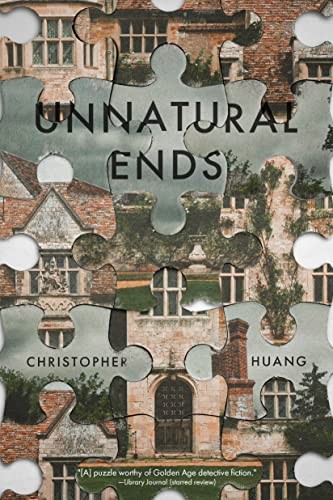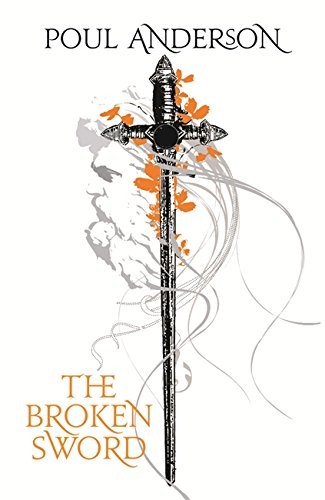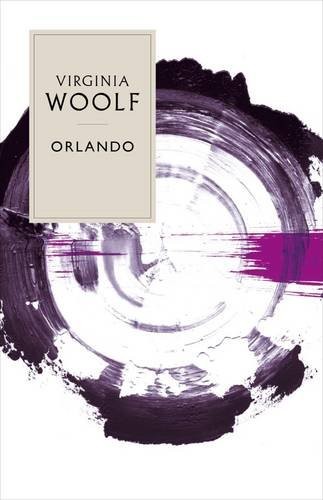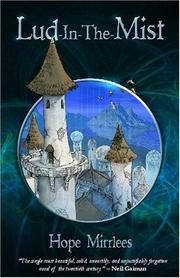Bones.
Reviews and Comments
I read pretty much everything, but lean towards SFF, horror, literary fiction, and sometimes romance. Dangerously obsessed with The Locked Tomb. Sometimes, I write.
I'm also active on Mastodon at @s3thi@fantastic.earth and on my personal blog.
This link opens in a pop-up window
Ankur Sethi wants to read Bone Maker by Sarah Beth Durst
Ankur Sethi wants to read Jade City by Fonda Lee
Ankur Sethi wants to read The Priory of the Orange Tree by Samantha Shannon
Ankur Sethi wants to read Spring's Arcana by Lilith Saintcrow
Ankur Sethi wants to read The Traitor Baru Cormorant (Baru Cormorant #1) by Seth Dickinson
Ankur Sethi wants to read Unnatural Ends by Christopher Huang
Fogknife liked it, and it seemed intriguing enough to add to my TBR.
Ankur Sethi stopped reading The Italian: Or the Confessional of the Black Penitents by Ann Radcliffe
Ankur Sethi wants to read The Broken Sword by Poul Anderson
Importing some books from J.G Keely's suggested readings in fantasy.
From the above link:
Anderson's great fantasy work was published the same year as the first volume of Tolkien's Lord of the Rings, but has gone sadly unrecognized by many readers of fantasy. Since Anderson and Tolkien were both taking inspiration from the Eddas, there are many similarities between the books: the titular 'broken sword' which must be reforged, noble elves, deep-delving dwarves, an odd amalgam of Pagan and Christian morality, a war between the forces of good and evil, and a central character caught between. For many, Tolkien's is the greater work, but there are certain fantasy aficionados--like Michael Moorcock--who maintain that Anderson's vision is the more vivid, less condescending, and a more unified exploration of man's fate, and I join him in holding this book in that high respect.
Ankur Sethi wants to read Gloriana, or, The unfulfill'd queen by Michael Moorcock
Importing some books from J.G Keely's suggested readings in fantasy.
From the above link:
Moorcock is an inventive and ever-changing fantasy author who was contemporary with Tolkien, and who is still writing today. His Elric saga has been very influential, combining a mythic fantasy based upon quantum mechanics with an antiheroic protagonist. However, I found the magic in the Elric books somewhat more interesting than the plot or characters. Moorcock is very creative, but sometimes his pen moves faster than his mind. In his own words: "I think of myself as a bad writer with big ideas, but I'd rather be that than a big writer with bad ideas." While the Elric books are competent and interesting fantasies, Gloriana is his real masterpiece. It takes much of its theme and tone from Peake's Gormenghast, but Moorcock filters this through his own style and purview. While Gormenghast is the story …
Importing some books from J.G Keely's suggested readings in fantasy.
From the above link:
Moorcock is an inventive and ever-changing fantasy author who was contemporary with Tolkien, and who is still writing today. His Elric saga has been very influential, combining a mythic fantasy based upon quantum mechanics with an antiheroic protagonist. However, I found the magic in the Elric books somewhat more interesting than the plot or characters. Moorcock is very creative, but sometimes his pen moves faster than his mind. In his own words: "I think of myself as a bad writer with big ideas, but I'd rather be that than a big writer with bad ideas." While the Elric books are competent and interesting fantasies, Gloriana is his real masterpiece. It takes much of its theme and tone from Peake's Gormenghast, but Moorcock filters this through his own style and purview. While Gormenghast is the story of a man from growth to adulthood, Gloriana is about the sensual coming-of-age of a great queen. However, the sexuality is psychological, not pornographic. Otherwise it is a very unusual book, and better to read than to describe. His SF series The Dancers at the End of Time is also quite unusual, and more character-driven than his other work, if not as complex as Gloriana.
Ankur Sethi wants to read Kingdoms of Elfin by Sylvia Townsend Warner
Importing some books from J.G Keely's suggested readings in fantasy.
From the above link:
The maddening intricacies of faerie courts have fascinated European fantasists for centuries, and many of the greatest have explored them, from Dunsany to Anderson to Clarke, but Warner is not to be outdone by any of them in this work. Sinister, strange, and sensual, her exploration of the wiles of the fey is an infectious sort of insanity, drawing in the reader while in the same breath disturbing them. Her prose is lovely, and perfectly controlled. Written late in her life, this is a work by a master of the form, and not a comma is out of place. Despite its title, she concentrates much more on the perfidies of Titania than the machinations of Oberon.
Importing some books from J.G Keely's suggested readings in fantasy.
From the above link:
The authors of the late Victorian period in England marked a high point for sophistication and inventiveness in fantasy. It is this gestational period from which all modern fantasy, consciously or unconsciously, draws. These were the magnificent dream visions that Lewis and Tolkien tried to recapture in their more stolid works. Dunsany is one of the masters of the British fairy tale, able to use tone to create a pervasive world of strange enchantment that grasps at the reader's soul. His magic is a living thing, possessing its own will and unfathomable laws, twisting pervasively through the warp the story, leaving nothing untouched. The plot of The King of Elfland's Daughter is fairly straightforward, a recognizable British fairy tale, but dreamlike and hallucinogenic, the very inspiration for Lovecraft's brand of alienated horror. The Sword of …
Importing some books from J.G Keely's suggested readings in fantasy.
From the above link:
The authors of the late Victorian period in England marked a high point for sophistication and inventiveness in fantasy. It is this gestational period from which all modern fantasy, consciously or unconsciously, draws. These were the magnificent dream visions that Lewis and Tolkien tried to recapture in their more stolid works. Dunsany is one of the masters of the British fairy tale, able to use tone to create a pervasive world of strange enchantment that grasps at the reader's soul. His magic is a living thing, possessing its own will and unfathomable laws, twisting pervasively through the warp the story, leaving nothing untouched. The plot of The King of Elfland's Daughter is fairly straightforward, a recognizable British fairy tale, but dreamlike and hallucinogenic, the very inspiration for Lovecraft's brand of alienated horror. The Sword of Welleran and Others is a collection of some of his best short stories. Any author of fantasy should read him so they can learn that a book can only be as magical as it is strange, only as fantastical as it is unpredictable.
Ankur Sethi wants to read Orlando by Virginia Woolf
Importing some books from J.G Keely's suggested readings in fantasy.
From the above link:
A unique, transformative book that prefigures so much about modern writing, from 'Mannerpunk' and Stream-of-Consciousness to Slipstream and Magical Realism. Though over the past century it's been focused on as a 'Lesbian book' (or more recently, a 'trans book'), it's so much more than that, and to treat it in such simple terms is to limit it artificially. It is a book about the art of self-creation, beyond any limit of prescriptive social definitions of gender, or sexuality, or art. It is one of those books which, like Gormenghast or Moby Dick, commits wholly to freedom, never limiting direction or possibility in the text.
Ankur Sethi wants to read The Worm Ouroboros by Eric Rücker Eddison
Importing some books from J.G Keely's suggested readings in fantasy.
From the above link:
Eddison was another inspirations for Tolkien and Lewis, one of the progenitors of the 'created world' story. Like them, he was a linguist and a translator, familiar with historical myths and epics, but unlike them, he was no sentimental romanticist. Though his adventure seems to be, on the surface, one of chivalry, nobility, and honor, there are wry threads of irony throughout. He approaches the story with the excitement and vivacity of a child, and his love of the wondrous and strange is apparent, yet his writing is a poetic recreation of the Jacobean form which gives the book a pervasive sense of strange archaism. Because his language is sometimes complex and unusual, I am hesitant to recommend this book to every reader. Yet, even if some of the words don't come across as more …
Importing some books from J.G Keely's suggested readings in fantasy.
From the above link:
Eddison was another inspirations for Tolkien and Lewis, one of the progenitors of the 'created world' story. Like them, he was a linguist and a translator, familiar with historical myths and epics, but unlike them, he was no sentimental romanticist. Though his adventure seems to be, on the surface, one of chivalry, nobility, and honor, there are wry threads of irony throughout. He approaches the story with the excitement and vivacity of a child, and his love of the wondrous and strange is apparent, yet his writing is a poetic recreation of the Jacobean form which gives the book a pervasive sense of strange archaism. Because his language is sometimes complex and unusual, I am hesitant to recommend this book to every reader. Yet, even if some of the words don't come across as more than beautiful poetry, the story itself is not oblique. The further one gets into the series, the more one comes to recognize the way the stories are structured around systems of rebirth, of unending, recurring cycles of moral, magical, amicable, and romantic relationships.
Ankur Sethi wants to read Lud-In-The-Mist by Hope Mirrlees
Importing some books from J.G Keely's suggested readings in fantasy.
From the above link:
Takes the brief but powerful vision of Rosetti's Goblin Market and runs with it. Written in lovely, transfixing language, lilting into little paradoxes and touching upon those strange moments in life which are so hard to capture in words. I've said before that there are no other writers I can compare to Peake, but there are bits in this story that evoke some of Peake's strangeness. The descriptions and asides scintillate--but the characters, dialogue, and plot are more usual, and less wondrous. As it transforms more into a procedural mystery story, it loses much of its impetus, but as a whole, the tone is charming and queer.















